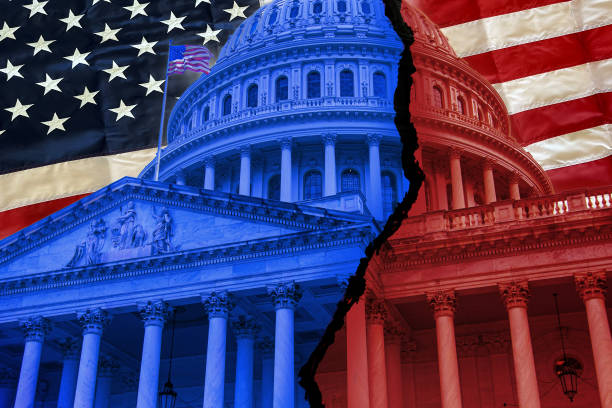The U.S. House Financial Services Committee voted on April 2, 2025, to pass the Stablecoin Transparency and Accountability for a Better Ledger Economy Act, commonly called STABLE Act stablecoin bill.
The bill garnered bipartisan support with a 32-17 vote, including backing from six democrats. It now moves to the House floor for a full vote, marking a pivotal moment in the U.S. government’s efforts to bring clarity and oversight to the $160 billion stablecoin market.
“H.R. 2392, the Stablecoin Transparency and Accountability for a Better Ledger Economy (STABLE) Act of 2025, passed Committee 32-17,” U.S. House Committee on Financial Services Republicans said on Wednesday.
A key development in stablecoin regulation
Stablecoins, a type of cryptocurrency designed to maintain a stable value by being pegged to fiats like the U.S. dollar, have surged in popularity in recent years, with major players like Tether (USDT) and Circle’s USDC dominating the space.
These digital assets have become a cornerstone of the cryptocurrency ecosystem, facilitating trading, payments, and decentralized finance (DeFi) applications.
However, their rapid rise has also raised concerns among regulators about financial stability, consumer protection, and potential illicit use, prompting lawmakers to act.
The STABLE Act stablecoin bill, introduced by Committee Chair French Hill (R-Ark.) and Rep. Bryan Steil (R-Wis.), who chairs the Digital Assets Subcommittee, seeks to establish a comprehensive framework for dollar-denominated stablecoins.
The legislation includes provisions for reserve requirements, ensuring that issuers maintain sufficient backing for their tokens, as well as anti-money laundering (AML) standards to prevent misuse.
During the markup session, Hill emphasized the transformative potential of blockchain technology, stating, “This continues to transform the way money moves,” emphasizing the bill’s role in fostering innovation while addressing risks.
The vote comes amid heightened scrutiny of stablecoins, particularly in light of their ties to prominent figures and ventures. Notably, the Trump family’s World Liberty Financial (WLFI) recently launched its stablecoin, USD1, leading to debates about potential conflicts of interest given President Donald Trump’s vocal support for cryptocurrency.
Critics, including Rep. Maxine Waters (D-Calif.), the committee’s ranking member, have expressed alarm over the bill’s implications. Waters argued that it could enable Trump’s stablecoin to be integrated into government payments.
Read also: Stablecoins: Their roles in the crypto ecosystem, types and associated risks
STABLE Act stablecoin bill advances
Despite such concerns, the bill’s passage shows a growing consensus in Washington that stablecoin regulation is overdue. The 32-17 vote, with six Democrats crossing party lines to support the measure, shows a willingness to bridge partisan divides on an issue seen as critical to maintaining U.S. financial leadership in the digital age.
The legislation builds on earlier efforts, such as the Senate Banking Committee’s approval last month of the Guiding and Establishing National Innovation for US Stablecoins (GENIUS) Act, which similarly seeks to impose oversight and reserve rules on stablecoin issuers.
The STABLE Act’s journey is far from over. After clearing the House Financial Services Committee, it must now pass a full House vote before reconciling with the Senate’s GENIUS Act. Key differences between the two bills will need to be ironed out in conference.
French Hill acknowledged these challenges, noting that Trump’s crypto dealings have made drafting stablecoin legislation “more complicated.” Nevertheless, he framed the bill as part of a push for financial innovation through sound digital asset policy.
The timing of the vote also coincides with other developments in the crypto space. On the same day, the U.S. Office of Foreign Assets Control (OFAC) sanctioned eight cryptocurrency addresses linked to Russian exchange Garantex and Yemen’s Houthi group, highlighting the government’s focus on curbing illicit financial flows in the digital realm.
Meanwhile, First Digital Trust (FDT), the issuer of the FDUSD stablecoin, responded to Justin Sun’s insolvency allegations. FDT asserted that all FDUSD tokens are fully backed by U.S. Treasury Bills, and announced legal action against Sun following a brief FDUSD depegging incident on Wednesday.
As the bill advances to the House floor, its fate now hinges on lawmakers’ ability to balance these competing interests. In the meantime, the advancement of the STABLE Act stablecoin bill denotes a rare moment of progress in the often-contentious realm of crypto policy, offering a glimpse of how the U.S. might shape the future of digital finance.
Recall that Trump established a strategic bitcoin reserve and U.S. digital asset stockpile in March, naming BTC, Ethereum (ETH), Cardano (ADA), Solana (SOL), and XRP as part of the strategic crypto reserve.






